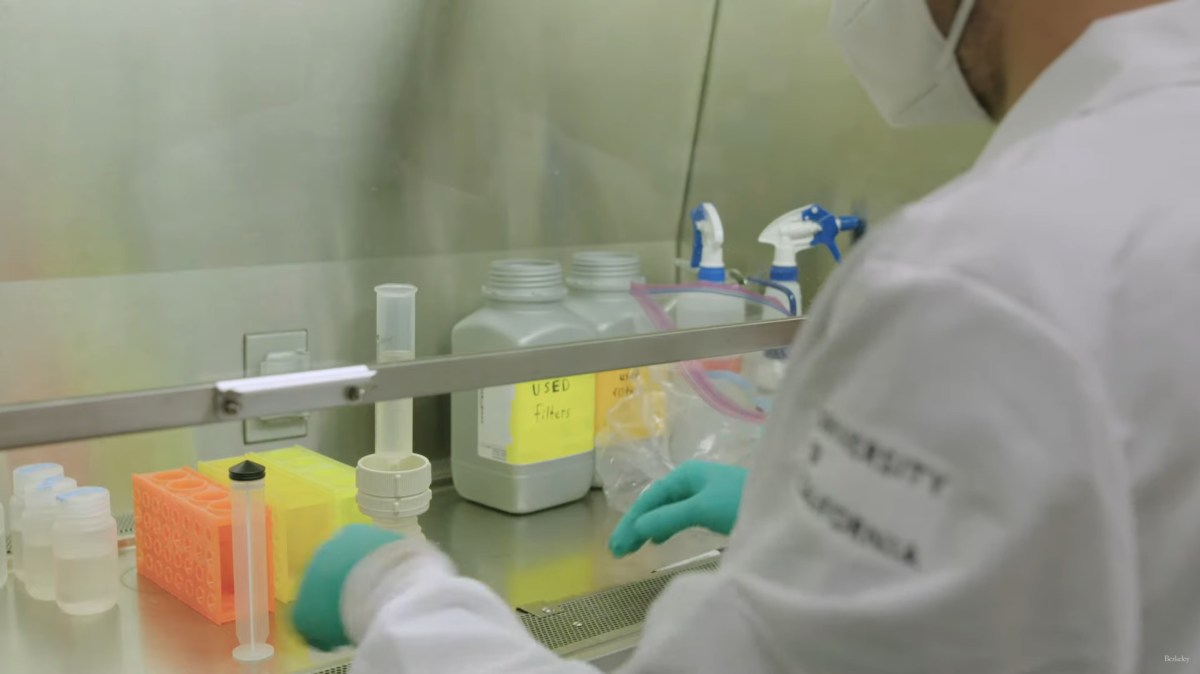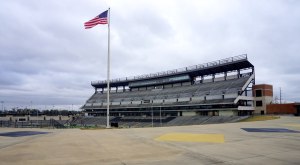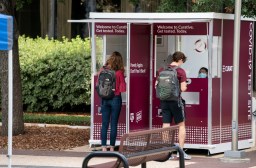UC Berkeley builds pop-up wastewater lab to aid local public health agencies in COVID-19 response

The University of California, Berkeley set up a temporary laboratory where it is testing sewage water to spot signs of COVID-19 in the San Francisco Bay Area, the university announced last week. University leaders said the new high-throughput pop-up lab is helping health officials collect data on where the virus may be spreading, circumventing some of the limitations of testing people individually.
“From the very beginning of the pandemic, it was clear that there were major limitations to the ability to test every individual in a population frequently enough to find out whether they were infected or not,” Kara Nelson, a professor of civil and environmental engineering at UC Berkeley, told Berkeley News. “Wastewater naturally pools the waste from hundreds to even millions of people in a single sample, so if you can collect a representative sample of wastewater and analyze it, you can gain a tremendous amount of information that you likely couldn’t gain through testing people individually.”
Since it was discovered that people infected with COVID-19 often shed the virus in their feces, scientists around the country have looked to wastewater as an efficient way to spot signs of the virus in communities. It also can be an early warning for a potential outbreak, allowing researchers to confirm presence of the virus in individuals before they experience symptoms.
The UC Berkeley team has begun testing sewers for the virus in 11 municipalities and is processing approximately 30 samples a week, according to Berkeley News. The testing technique takes about eight hours to complete, Adrian Hinkle, a graduate student in Nelson’s lab, said, and public health officials receive results within three days.
By the end of the year, the team said it plans to scale up to as many as 200 samples a week to meet growing demand from regional public health agencies.
To collect samples, UC Berkeley researchers hang a plastic barrel in a sewer hole, which collects a small sample of wastewater from a sewer pipe below several times an hour through an attached hose. The wastewater is then tested in the pop-up lab for virus.
“Depending on where they sample, [researchers] can get a comprehensive picture of the virus on a large scale, or we can use their skills to zoom in down to the building level,” Harlan Kelly, general manager of the San Francisco Public Utilities Commission, told Berkeley News.
This wastewater data can then be used to advise health officials on how to slow the spread of COVID-19 by implementing health guidelines and testing programs.
“One goal of this regional working group is to hear from public health officials how they think this wastewater data might help inform decision-making,” Sasha Harris-Lovett, a postdoctoral fellow at the Berkeley Water Center, told Berkeley News.
Wastewater testing has also been used in other areas across the country, including Arizona, Massachusetts and Nevada, to help combat COVID-19 and inform pandemic response decisions.




